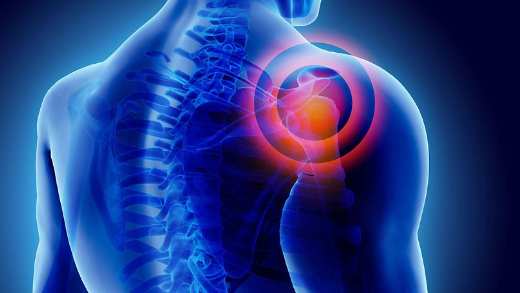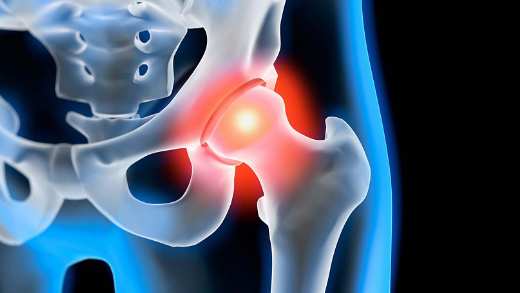According to the British Heart Foundation Footnote [1], in the UK, around 7.6 million people live with heart and circulatory disease, with someone losing their life to it every three minutes.
And it's an issue that affects almost as many women as men, with around four million males and 3.6 million females in the UK currently living with the condition.
The good news is it’s possible to help prevent heart disease or manage the condition if you develop it. So here are some of the steps you can take to help reduce your risk.
What is heart disease?
It’s the term for a number of conditions that can affect your heart. It’s often used interchangeably with cardiovascular disease, which describes diseases of the heart and circulation. These conditions can be present at birth or develop over time, and your risk may be higher if your close family has a history of it.
Coronary heart disease is the most common type of heart disease. It happens when the arteries around your heart are narrowed or blocked by a build-up of a fatty material. This can lead to chest pain, called angina and, if a blockage happens, it can lead to a heart attack, a stroke, or even heart failure.
According to the British Heart Foundation, more than 100,000 hospital admissions in the UK each year are due to heart attacks – that’s one every five minutes.
What are the symptoms of heart disease?
Symptoms can vary, depending on the heart condition you have, but they may include:
- Chest pain
- Weakness or numbness in your legs or arms
- Breathlessness
- Abnormal heart rate
- Feeling dizzy or lightheaded
- Fatigue
- Swollen limbs
How is heart disease diagnosed?
If you’re showing symptoms of heart disease, your specialist may send you for tests, which could be one of the following:
- Electrocardiogram (ECG)
- Exercise stress test
- X-ray
- Echocardiogram
- Blood test
- Coronary angiography
- Radionuclide test
- MRI scan
- CT scan
If these are unfamiliar to you, don’t worry – your doctor can explain what to expect, and will help to reassure you before your appointment.
How is heart disease treated?
Depending on the condition diagnosed, timely treatment may help ease your symptoms and reduce your risk of further problems, along with making lifestyle changes.
Medicines
There are many different medications used to treat heart disease. You might be prescribed one or more of these to treat high blood pressure or widen your arteries. Some medications may also be prescribed to make your blood less likely to form clots, prevent cholesterol forming, or help slow your heart rate.
The aim is to keep your symptoms under control or prevent a future heart condition. Whether tablets, sprays or patches, your specialist will explain how often to use them, and any possible side effects.
Surgery and procedures
Your doctor may recommend surgery if medicines aren’t enough to control your symptoms.
Types of surgery for heart disease include:
- Heart valve surgery
- Adding a stent, to hold the artery open
- A heart bypass, which improves blood flow to the heart
- Fitting an ICD or pacemaker, to regulate the heart
How can health insurance support someone with a heart condition?
If it’s suspected you have heart problems after you take out health insurance, you’ll get diagnosis and treatment in a private hospital and, usually, faster access to tests and treatment than you might on the NHS. You’ll also get a choice of hospital specialist and will be offered longer appointment times.
This can all combine to help you feel reassured at a difficult time. And you could also cover your family by adding your partner and children to your policy.
Can you get health insurance if you already have heart disease?
You usually need to already have health insurance before you develop signs of heart disease for it to be included on your policy. That’s because health insurance isn’t usually meant for pre-existing or chronic conditions.
But if you already have a type of heart disease, it doesn’t necessarily mean you won’t be able to get health insurance or be eligible for cover for other conditions. It just might mean that the insurer will ask for more information about your health and ongoing treatment, and that heart disease will be excluded from your cover.
When you apply for health cover, you’ll be asked about your general health, including heart problems.
Be sure to tell your insurer about any symptoms or conditions you already have. Once you’ve taken health cover out, your policy conditions will explain what you’re covered for in detail.
If you need to make a claim, call your insurer before you have any consultations, treatment, or diagnostic tests, so you can be sure you’re covered for it.
Heart disease self-help
There are practical steps you can take to keep healthy and lower your risk of developing heart disease, or to prevent it from getting worse, if you already have it.
It really can help your heart if you take these preventative steps to lower your blood pressure and cholesterol levels, and keep to a healthy weight:
- Eat a balanced, healthy diet that’s low in salt and saturated fat, and high in fibre. Limit how much sugar you have, as it can increase your risk of diabetes, which significantly increases your risk of heart disease Footnote [2]
- Get moving. Aerobic exercise, like swimming and dancing, makes your heart work harder, so it stays efficient
- Don’t smoke or give it up if you do. Giving up will help reduce your risk of heart disease. Stopping smoking after a heart attack quickly reduces your risk of having a heart attack in the future to near that of a non-smoker Footnote [3]
- Go easy with your alcohol intake. Don’t drink more than the recommended limit, and skip drinking to excess in one go, which may increase your risk of a heart attack.
















